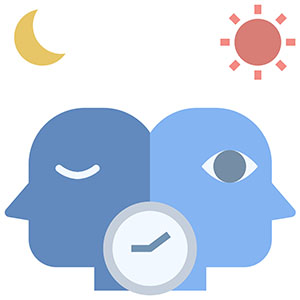July 2025 Dispatch for the CV Team
This month: good news for java lovers, a how-to guide on migraine and CVD, medically tailored meals for HF, and more.

Every month, Section Editor L.A. McKeown curates a roundup of recent news beyond our regular TCTMD coverage, with tidbits from journals and medical meetings around the globe that are of special interest to heart teams and allied cardiovascular professionals.
 Moderate coffee drinking is associated with a reduced risk of hypertension, type 2 diabetes, MI, arrhythmias, heart failure, and overall mortality, according to a state-of-the-art review of the relationship between the popular beverage and various forms of CVD. In their deep dive into the existing literature, published in the European Heart Journal, the researchers conclude that despite an increased risk of premature ventricular contractions as seen in the CRAVE trial, coffee is relatively safe with regard to CV health and may convey some helpful anti-inflammatory properties as well as other health benefits that are unrelated to caffeine.
Moderate coffee drinking is associated with a reduced risk of hypertension, type 2 diabetes, MI, arrhythmias, heart failure, and overall mortality, according to a state-of-the-art review of the relationship between the popular beverage and various forms of CVD. In their deep dive into the existing literature, published in the European Heart Journal, the researchers conclude that despite an increased risk of premature ventricular contractions as seen in the CRAVE trial, coffee is relatively safe with regard to CV health and may convey some helpful anti-inflammatory properties as well as other health benefits that are unrelated to caffeine.
The numerous links between migraine and CVD—epidemiological, clinical, and mechanistic—are the focus of a review paper published in Neurology and Therapy. In it, investigators discuss how to identify migraine in the context of CVD, shared and contributory risk factors, as well as the influence of socioeconomic factors and genetics. It also explores a variety of drug therapies to aid in migraine prevention, with an eye toward CV safety.
In a scientific statement on the management of obesity in adults with heart failure (HF), the American College of Cardiology provides an overview of the latest evidence and current challenges. The review covers existing processes for diagnosis, evaluation, and risk assessment of obesity in this population. The statement, published in JACC, details a range of weight-loss strategies including behavioral interventions, anti-obesity medications, and metabolic and bariatric surgery options.
What role do circadian rhythms play in cardiovascular function and how might they be used in both clinical and research settings? Those are some of the questions researchers address in an article published in the European Heart Journal. “By aligning interventions with the natural circadian cycle, it may be possible to enhance the efficacy of cardiovascular treatments, reduce side effects, and potentially improve long-term outcomes,” the authors suggest. 
An artificial intelligence (AI) screening model trained to differentiate cardiac amyloidosis from other causes of increased left ventricular wall thickness on echocardiography outperformed traditional echocardiography-based screening techniques and appears to be reliable across clinical sites, diverse patient populations, and ultrasound vendors. Writing in the European Heart Journal, researchers say use of the AI model in screening holds the potential to detect cardiac amyloidosis at earlier stages of the disease, something that could prevent delays in workup and treatment, impact survival, and better forestall declines in quality of life.
Catheter ablation of atrial fibrillation (AF) is associated with some gains in cognitive function at 1 year, a small substudy of the REMEDIAL trial found. In a research letter published in JACC: Electrophysiology the investigators say they observed significant improvements in immediate recall and executive function in patients age 65 and older who had lower versus higher AF burden, suggesting a potential mechanistic link between AF ablation and cognitive benefits.
 Some data suggest that medically tailored meals for HF patients in the hospital or at home may improve their nutrition and even prevent HF hospitalization. Through semistructured interviews with healthcare workers and HF patients, a group of investigators found high rates of acceptance of the food-based strategies—including prescriptions for fruits and vegetables—amid suggestions that they could play a role in mitigating some socioeconomic disparities. Writing in the Journal of the American Heart Association, the researchers say the logistical considerations for implementation and funding of these programs should be studied further.
Some data suggest that medically tailored meals for HF patients in the hospital or at home may improve their nutrition and even prevent HF hospitalization. Through semistructured interviews with healthcare workers and HF patients, a group of investigators found high rates of acceptance of the food-based strategies—including prescriptions for fruits and vegetables—amid suggestions that they could play a role in mitigating some socioeconomic disparities. Writing in the Journal of the American Heart Association, the researchers say the logistical considerations for implementation and funding of these programs should be studied further.
A study of over 99,000 women suggests that premenstrual syndrome (PMS) and premenstrual dysphoric disorder (PMDD) may increase risk for CVD later in life. Compared with women who did not have a premenstrual disorder, those who did had a 31% higher risk of arrhythmias and a 27% higher risk of stroke. These risks were most pronounced in those diagnosed with a premenstrual disorder before age 25 and in those who had also experienced postnatal depression, according to the study published in Nature Cardiovascular Research.
Data from two large population-based screening trials of nearly 1,000 men studied for 5 years suggest that patients with small abdominal aortic aneurysm (AAA) have slower growth rates and less likelihood of repair, rupture, or death if they are on high-dose statins. Writing in Circulation, investigators say while the study doesn’t apply to women, it does indicate a high degree of dose-dependent reduction in risks that should be studied further to inform clinical practice.
News Highlights From TCTMD:
Some Ups, Some Downs in Proposed CMS Reimbursement for 2026, Cardiologists Say
People With Tricuspid Valve Disease Want More Information, Sooner
No Clear Risk of Dementia After TIA: Framingham Heart Study
Carbon Footprint of Surgical AVR Double the Size of TAVI’s
Roughly Half of Patients Don’t Have Symptoms Prior to a First MI
L.A. McKeown is a Senior Medical Journalist for TCTMD, the Section Editor of CV Team Forum, and Senior Medical…
Read Full Bio



Comments